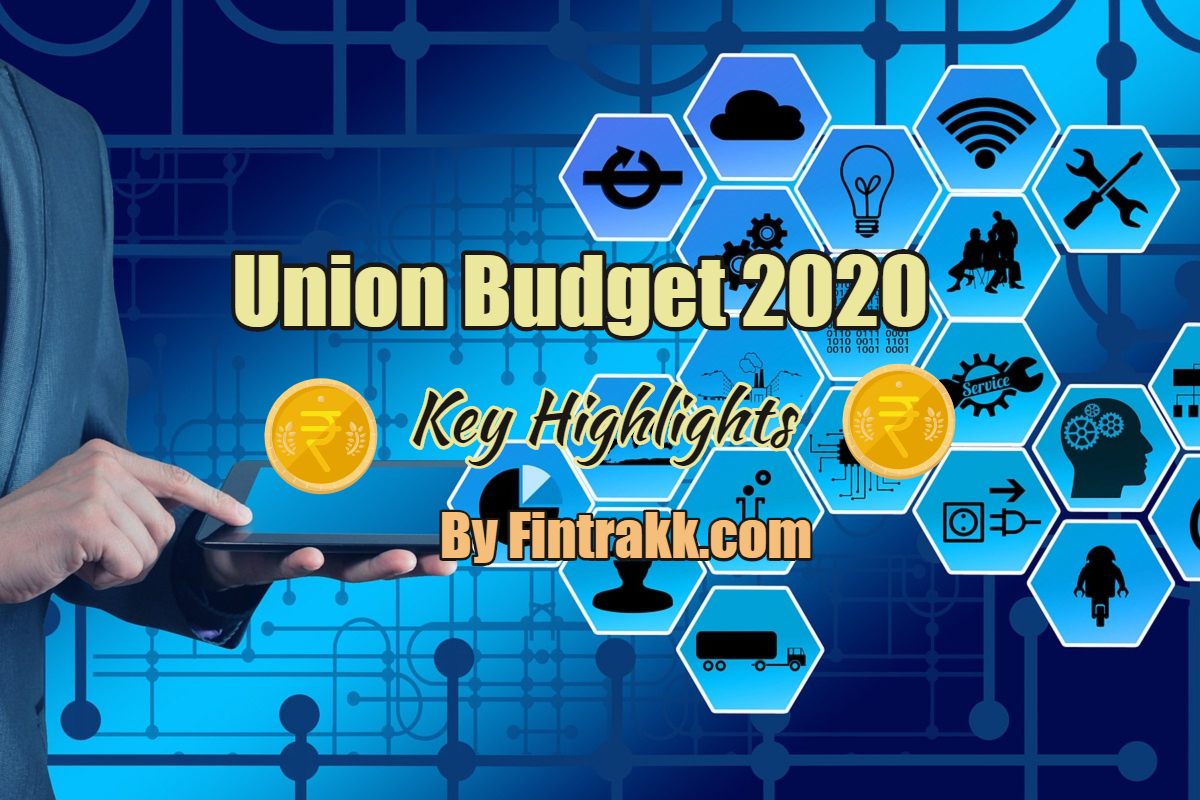Union Budget for 2020 was passed on 1st Feb 2020 laying down the score-card of financial numbers of past year performance and also carving the future steps for India’s economical success. This year’s budget was introduced keeping in mind a threefold development theme i.e. Aspirational India, Economical Development, and Caring Society. Government has promised an upward trend to growth and positive financial trends with GDP closing at 48.7% for 2014-19. India plans to move ahead into its journey of digital transformation and making everyone’s life easy.
We can elaborate on the financial planning of India through and through, but in this topic we will only highlight the key take away from the budget. They main highlights of the budget 2020 are:
Direct Taxes:
Corporate Taxes:
The corporate tax rates for new companies which are incorporated under the manufacturing sector are to be reduced @ 15%. Whereas, the tax rates for the existing manufacturing companies would be reduced to 22%.
Individual Taxes:
Optional New Income Tax Slabs: To simply tax law and to provide higher benefit to the individuals, a new personal income tax code was introduced for the individual taxpayers. The individuals who are ready to forgo 70 different deductions and exemptions like HRA, LTA, section 10(14) allowance, chapter VIA, standard deduction, and other etc. can enjoy the benefit of the newly introduced income tax slabs.
New Optional Tax Regime Financial Year 2020-21
[table id=146 /]
*The tax calculated shall be subject to a health and education cess of 4%.
Therefore, if you wish to follow the new tax regime, you will have to forego following exemptions and deductions, to name a few:
- Leave Travel Allowance (LTA)
- Conveyance Allowance
- House Rent Allowance (HRA)
- Relocation Allowance
- Children Education Allowance
- Standard Deduction
- Interest on housing loan (Section 24)
- Deduction under Chapter VI A: Section 80C, 80D, 80E, etc.
Keep your calculations updated to see which option suits you the best!
Dividend Distribution Tax (DDT): DDT has been removed to avoid additional burden of tax on the companies. The dividend would be taxed in the hands of the receiver at the applicable tax rate.
ESOP from start-up: Employee Stock Option Plan (ESOP) which are issued by a start-up to their employee would be taxed at:
- After the expiry of forty-eight months from the end of the relevant assessment year; or
- From the date of the sale of such specified security or sweat equity share by the assessee; or
- From the date of the assessee ceasing to be the employee of the person, Whichever is early.
Start-up having a turnover of up to 25 crores is currently allowed 100% deduction of its profits for three consecutive assessment years out of seven years. This 7 year limit has been stretched and expanded to 10 years now.
Every business owner having a turnover of more than Rs.1 crore is required to get their books of accounts audited by an accountant. To reduce compliance burden the government is set to increase the Rs. 1 crore criteria to 5 crores.
Also, the due date for filing of income-tax returns is proposed to be changed from 30th September to 31st October of the relevant assessment year.
As we all know in 2019 Budget, it was proposed that AADHAAR can be used inter-changeably with PAN and many people have benefited with such a scheme. Now, the government is proposing to put in place a system which will enable issue of instant PAN through Aadhaar.
Indirect Taxes
- It’s proposed to release simplified GST return which would be implemented from 1st April 2020.
- Also, the department is planning to fully automate the refund process.
Are you happy with the Budget 2020 and its key amendments? Feel free to share your views in the comment section.
